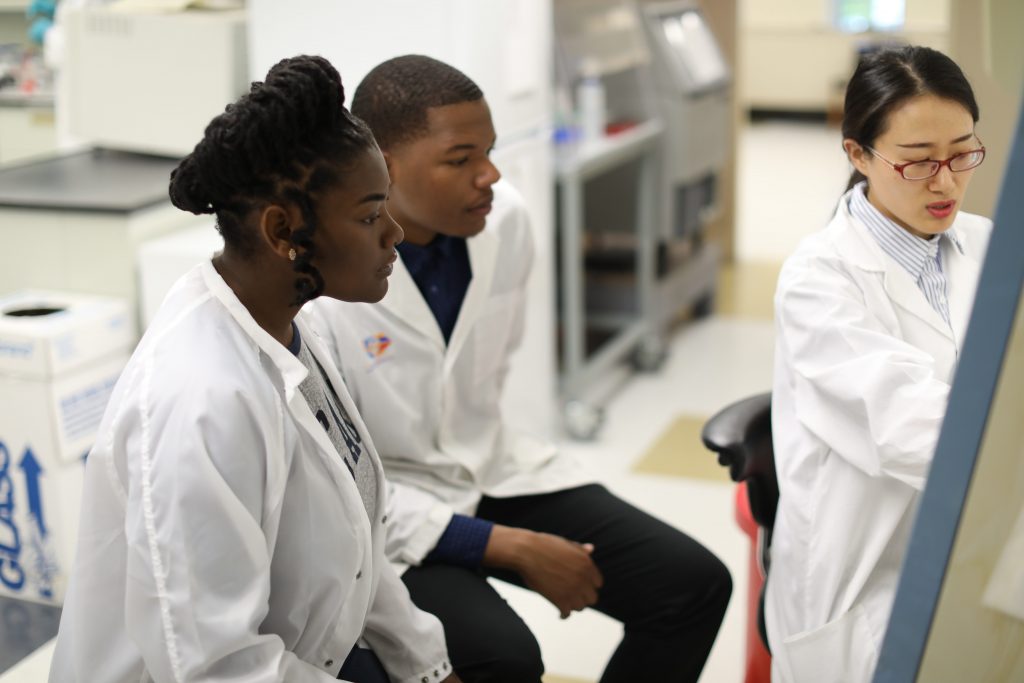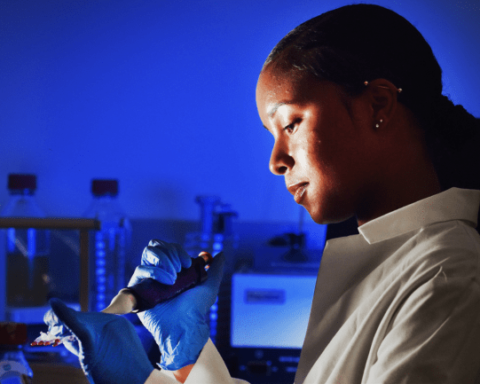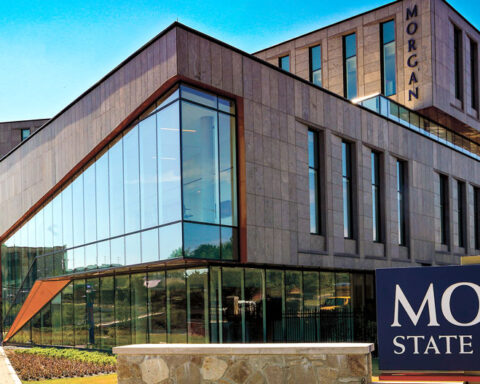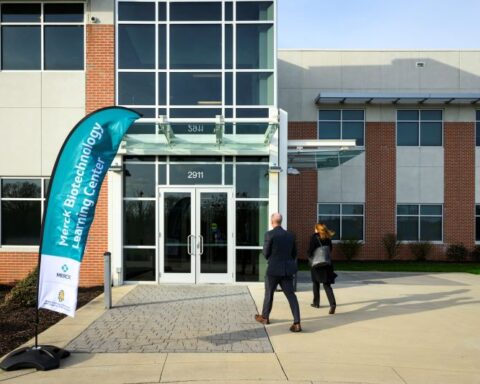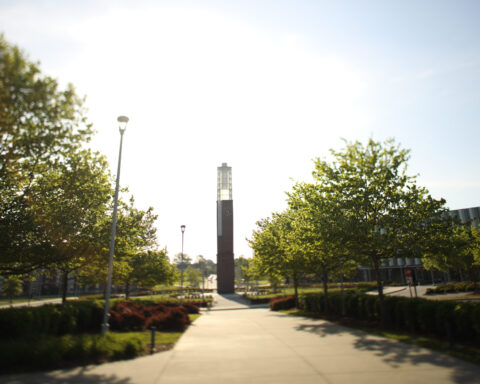By Todd Simmons, Jamie Crockett and Jackie Torok
Sponsored research activities at North Carolina Agricultural and Technical State University expanded significantly in fiscal year 2022, supported by a second-consecutive record year in contracts and grants to A&T faculty: Researchers earned $97.3 million in awards.
That marked an increase of $19.2 million over the previous fiscal year and a nearly 62% in total research funding over the past two years. Faculty across the university are increasingly prominent as principal or co-principal investigators on significant federally funded projects of interest to North Carolinians and the world of science more broadly.
A&T faculty also were awarded eight U.S. patents in FY22 – the most ever in a single fiscal over the university’s 132-year history.
Among the many projects to win funding are efforts to keep food service workers safe from airborne viruses, increase flood-mapping capabilities, reduce household energy expenses, expand Alzheimer’s disease research frontiers and improve automatic speech recognition systems.
“It’s important to underscore that this funding, awarded competitively, is earned through the creativity and focus of our talented faculty,” said North Carolina A&T Chancellor Harold L. Martin Sr. “It enables them to make important, impactful advances in such areas as autonomous vehicle technology, biomaterials, nanoengineering and more.
“I’m grateful for the outstanding effort they collectively put forward.”
Projects that received funding included:
- A $1.05 million N.C. Department of Environmental Quality grant to principal investigator Raymond Tesiero, Ph.D., in support of two research projects that will provide cost-effective solutions to low-income housing challenges by helping homeowners save energy and reduce household expenses. This and other research and apprenticeship projects in clean energy were piloted alongside colleagues Balakrishna Gokaraju, Ph.D., and Greg Monty, Ph.D., whose work resulted in a major award from the U.S. Department of Commerce last week.
- A $600,000 USDA National Institute of Food and Agriculture grant to lead investigator Salam Ibrahim, Ph.D., will help establish an airborne virus transmission laboratory model to create and disseminate best practices to keep employees safe and address gaps in evidence-based decision-making that the COVID-19 pandemic revealed in the food-processing industry.
- A $473,615 National Oceanic and Atmospheric Administration grant to Leila Hashemi Beni, Ph.D., will support her team’s work to address gaps in flood extent mapping capabilities by using drones to gather data that is challenging to capture otherwise. The data will assist regional and federal agencies to better manage rescue operations and assess damages following a major storm event.
- A $324,000 National Institutes of Health National Institute of General Medical Sciences grant to lead investigator Yeoheung Yun, Ph.D., will expand previous Alzheimer’s disease research by supporting Yun’s development of a reproducible, 3D membrane-free neuro-gliovascular-immune system. If successful, this project will “reduce animal use, fill the scientific gap between in vitro and vivo models and accelerate drug screening and discovery.” Yun, who has also designed a brain mini model to study Alzheimer’s disease, won the 2022 O. Max Gardner Award, the top annual recognition for faculty members in the UNC System, for his contributions to the field of bioengineering.
- A $320,565 grant from the National Science Foundation (NSF) for collaborative research on speech science to improve automatic speech recognition systems that are becoming ubiquitous in modern life. Joseph D. Stephens, Ph.D., is the principal investigator for the project, which has received funding through the NSF Build and Broaden Program. “We will help the science to become more inclusive by investigating how human listeners understand variable speech, and will help diversify the field by increasing the capacity and involvement of students from groups that are underrepresented in speech science,” said Stephens.
“Our faculty are deepening their leadership and reputations across numerous areas of scientific interest, both on their own and in collaboration with peers across campus and around the country,” said Vice Chancellor for Research and Economic Development Eric Muth, Ph.D. “The growth for which they were responsible last year is not only great for the projects they’re involved in now, but for those they will pursue in the future.”
Research funding is already off to a brisk start in the current fiscal year, with a $23.7 million American Rescue Plan Good Jobs Challenge grant announced last week from the U.S. Department of Commerce to create an energy workforce training program.
Additional funding for A&T to work with other state and historically Black universities to diversify and expand the research workforce – as well as study in partnership with other North Carolina universities the microbial communities that inhabit the structures in which we live, work and play – will be announced today.

